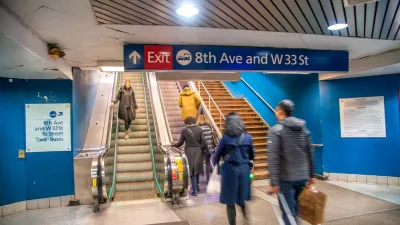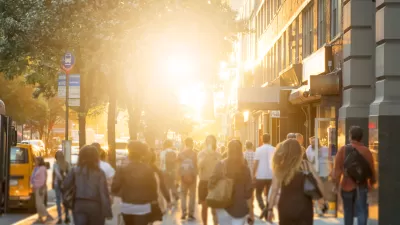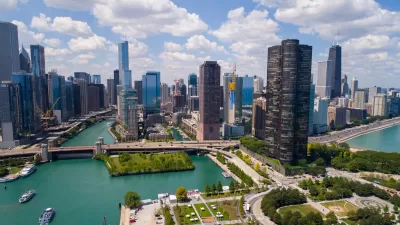G.M. Donley pens an impassioned plea to reject "ready made" narratives about the decline of Cleveland Heights, an inner suburb of Cleveland, after the murder of local bar and restaurant owner Jim Brennan.
After the "awful murder last Monday of Jim Brennan, owner of the Colony restaurant and bar on Lee Road in Cleveland Heights," writes Donley, "the tone of the public discourse that followed was charged with [the] themes…that somehow Cleveland Heights had brought this upon itself."
The "ready made narrative" in this case is that the residents of Cleveland Heights, according to Donley's analysis of commenters in the media, brought this upon themselves by sacrificing the isolation of "defensible enclaves" for the "common ground in community" and "vibrant street life."
Donley's case is that takeaway from the tragic incident should not be an indictment of Cleveland Height's urbanism: "the real wake-up call to me is how this incident threw into the light of day how ready-made narratives about 'how things are' and 'how things used to be' continue to undermine the strength of the region."
In fact, ready made narratives are just as easily forced on to suburbs located farther from the city center: "the ready-made narrative for outer-suburban places is more like what we heard in the aftermath of the Columbine shootings in Colorado: suburban cul-de-sac social alienation comes to roost in the abhorrent acts of disaffected young men."
And the final, passionate call to action: "So instead of swallowing a ready-made narrative about us, we need to write our own story for how this region will thrive. For that to story to unfold, we need the city centers to rebound, the inner-ring places to retain their dense and leafy flavor, the outer-ring places to become more sustainable, and the surrounding countryside to teem with agricultural production and natural beauty."
FULL STORY: Cleveland Heights and the Problem with "Used to Be"

Alabama: Trump Terminates Settlements for Black Communities Harmed By Raw Sewage
Trump deemed the landmark civil rights agreement “illegal DEI and environmental justice policy.”

Planetizen Federal Action Tracker
A weekly monitor of how Trump’s orders and actions are impacting planners and planning in America.

The 120 Year Old Tiny Home Villages That Sheltered San Francisco’s Earthquake Refugees
More than a century ago, San Francisco mobilized to house thousands of residents displaced by the 1906 earthquake. Could their strategy offer a model for the present?

In Both Crashes and Crime, Public Transportation is Far Safer than Driving
Contrary to popular assumptions, public transportation has far lower crash and crime rates than automobile travel. For safer communities, improve and encourage transit travel.

Report: Zoning Reforms Should Complement Nashville’s Ambitious Transit Plan
Without reform, restrictive zoning codes will limit the impact of the city’s planned transit expansion and could exclude some of the residents who depend on transit the most.

Judge Orders Release of Frozen IRA, IIJA Funding
The decision is a victory for environmental groups who charged that freezing funds for critical infrastructure and disaster response programs caused “real and irreparable harm” to communities.
Urban Design for Planners 1: Software Tools
This six-course series explores essential urban design concepts using open source software and equips planners with the tools they need to participate fully in the urban design process.
Planning for Universal Design
Learn the tools for implementing Universal Design in planning regulations.
Clanton & Associates, Inc.
Jessamine County Fiscal Court
Institute for Housing and Urban Development Studies (IHS)
City of Grandview
Harvard GSD Executive Education
Toledo-Lucas County Plan Commissions
Salt Lake City
NYU Wagner Graduate School of Public Service





























